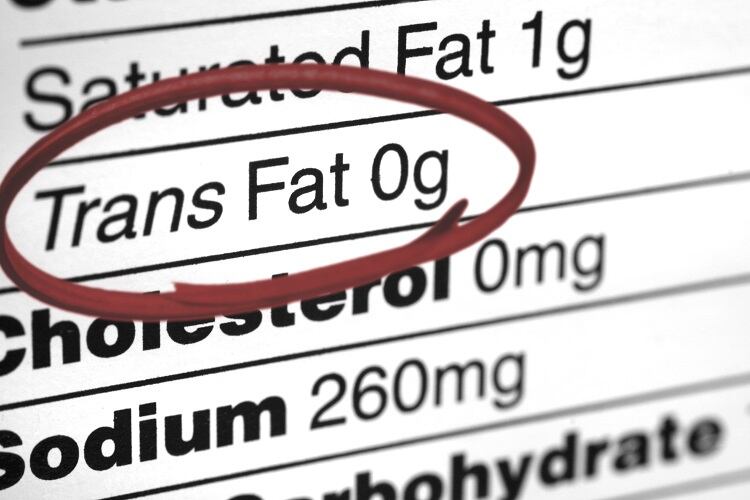The World Health Organization (WHO) is partnering with not-for-profit organisation, Resolve to Save Lives, to support the development and implementation of the REPLACE action package, an initiative providing counties with a framework for eliminating industrially produced trans fat from their national food supplies.
In recognition of their progress in this endeavour, Denmark, Lithuania, Poland, Saudi Arabia, and Thailand have been awarded certificates validating their achievements. Figures released by the WHO show strong results from these countries during the first five years of the REPLACE initiative, noting that they demonstrated best practice policy for the elimination of industrially produced trans-fatty acids (iTFA).
“WHO determined the validation awards were a great way to demonstrate the progress we’ve made toward global trans fat elimination. Since the launch of the REPLACE initiative, half the world’s population is protected from this toxic chemical in their foods.” Dr. Renu Garg, Senior Vice President, Cardiovascular Health at Resolve to Save Lives, told FoodNavigator.
“We wanted to recognise that trans fat elimination begins with policy passage, but it doesn’t end there—successfully implementing a trans fat elimination policy requires ongoing commitment, but as these countries have shown, it can be done.”
What are trans fats and why does the WHO want to remove them from national food supplies?
Trans-fatty acids (TFA) are semisolid to solid fats that occur in two forms. The first form is industrially produced and the second is naturally occurring.
Industrially produced trans-fatty acids have been linked to serious health problems, including an increased risk of cardiovascular disease and diabetes. Coupled with this, there are no nutritional benefits to its consumption. “Trans fat has no known health benefit, but huge health risks,” said Dr Tedros Adhanom Ghebreyesus, WHO Director-General.
The food industry has greatly reduced the use of industrially produced trans-fatty acids in food production in recent years, however it’s still found in large amounts, in many fried, packaged and processed foods, such as margarine, and commercially baked cakes, pies, and cookies.
The European Commission advises that “evidence from epidemiological as well as controlled human intervention studies indicates that consumption of diets containing elevated levels of trans fatty acids (TFA) increases the risk of coronary heart disease,” and the European Food Safety Authority (EFSA) concludes that, “TFA intakes should be as low as is possible.”
“It’s not only a low-cost solution; we also have evidence from high- and middle-income countries that eliminating trans fat is cost-effective and often cost-saving. Eliminating trans fats from foods would save countries billions of dollars in healthcare costs associated with stroke, heart attack, and cardiovascular disease,” added Dr. Renu Garg.
And the benefits don’t end there. It’s believed that eliminating trans fat from national food supplies could also help to reduce health inequities as foods high in trans fat tend to cost less and are therefore often more likely to be consumed by individuals and families from lower-income households, putting them at increased risk for cardiovascular disease.
Animal foods, such as red meats and dairy, have small amounts of naturally occurring trans fats. These are not currently believed to be a cause for concern.
WHO best practice policy options:
1) Mandatory national limit of two grams of industrially produced trans-fatty acids per 100 grams of total fat in all foods
2) Mandatory national ban on the production or use of partially hydrogenated oils (a major source of trans fat) as an ingredient in all foods.
The guidelines go on to note that for some countries, an optimal programme would implement both policies, due to the sources of trans fat.
What more can be done to remove trans fat from foods?
In 2018, the WHO the set ambitious target of fully eliminating industrially produced trans-fatty acids from the global food supply by the end of 2023. Although this was not achieved, significant progress has been made towards that goal and the WHO is continuing in its efforts to remove them from all food supply chains across all nations, with a proposed new target set for 2025.
“A total of 53 countries have now best practice policies in effect for tackling iTFA in food, vastly improving the food environment for 3.7 billion people, or 46% of the world’s population, as compared to 6% just 5 years ago,” said a spokesperson for the WHO. “These policies are expected to save approximately 183 000 lives a year.”
Companies are getting involved in the fight against trans fat
Govenments are not alone in their efforts to eliminate industrially produced trans-fatty acids from food supplies, some major companies are taking action too. American food brand, Cargill,become the first global edible oils supplier to meet the WHO’s best practice policy on eliminating industrially produced trans-fatty acids from its products.
"We have proven it is not only feasible to meet the iTFA recommendations while being mindful of saturated fat levels, but it can also be done without discernably changing the taste or texture of consumers’ favorite foods," said Natasha Orlova, Cargill vice president for edible oils and managing director for North America. "We call upon other industry players to follow our lead and remove iTFAs from all their products, too."
Despite recent successes in eliminating industrially produced trans-fatty acids from food globally, over half of the world's population remains unprotected from its harmful impacts, putting them at an increased risk of developing related illnesses such as diabetes and heart disease.
“Trans fat elimination is economically, politically, and technically feasible and saves lives at virtually no cost to governments or consumers. And that’s not just in wealthy countries—low-and-middle-income countries now lead the way with India, Bangladesh, the Philippines, Argentina, Ukraine, Nigeria, and Brazil all having passed policies to eliminate trans fat,” said Dr. Renu Garg.
“Prioritisation is a big challenge. Many countries have not prioritised trans fat elimination because they don’t think it’s an important issue, especially when compared to competing policy priorities. This has been the case in countries across the economic spectrum—low- and high-income countries alike. However, we know that regardless of whether trans fat is a big or small problem in your food supply, it’s harmful and can be easily eliminated,” added Dr. Renu Garg. “As more and more countries eliminate trans fat, those without regulations in place are increasingly at risk of becoming dumping grounds for products containing trans fat that companies can't sell elsewhere—so it may become a more urgent issue.”
Dr Tedros Adhanom Ghebreyesus agreed, saying, “We are very pleased that so many countries have introduced policies banning or limiting trans fat in food. But introducing a policy is one thing; implementing it is another. I congratulate Denmark, Lithuania, Poland, Saudi Arabia and Thailand, who are leading the world in monitoring and enforcing their trans fat policies. We urge other countries to follow their lead.”



